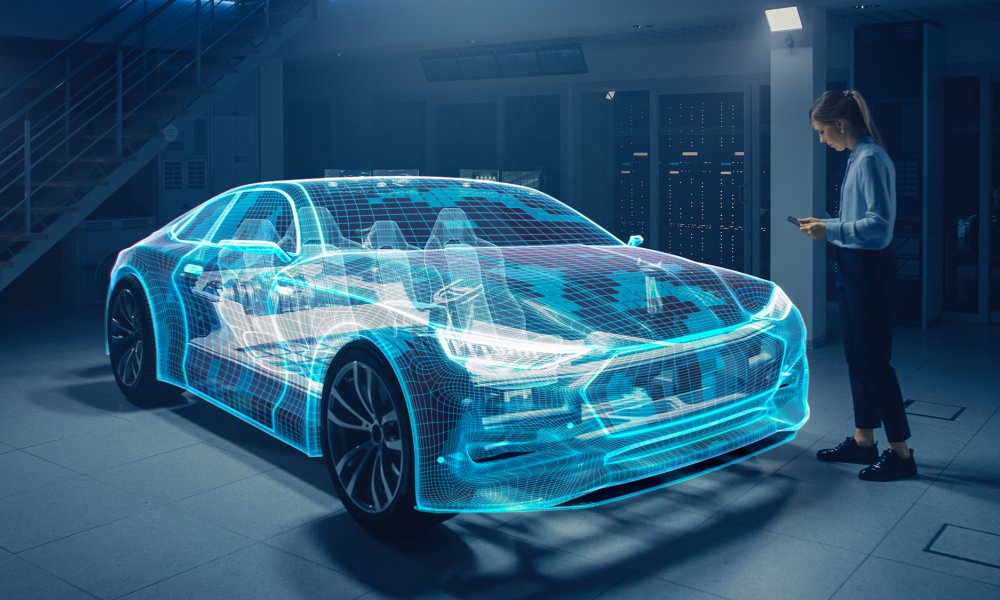
AUTOMOTIVE ENGINEERING - FUTURE IS SELF-DRIVING AUTOMOBILES
The automotive industry is undergoing a revolution marked by automation and electric power. Automobiles that drive themselves are already here. Self-driving cars will flood the market sooner than we think, and they'll forever change the transportation landscape as we currently know it.
A future with increasingly fuel-efficient self-driving cars requires a new generation of well-prepared automotive engineers and technicians who will take the helm. Schools offering STEM-based education can provide students the hands-on learning experiences they’ll need to develop engineering skills and interact with technologies like self-driving automobiles. They'll also need to address the ethical implications that go along with this budding technology.
The New Automotive Engineering Revolution
Self-driving automobiles are cars or trucks that operate without a human's control. These autonomous or "driverless" automobiles utilize software and sensors to navigate and control the vehicle. No fully-autonomous vehicles are legal or currently in operation in the United States, although a few prototypes do exist. Some vehicles already have partial self-automation functions like braking systems and lane assistance.
Self-driving automobiles might seem like a modern marvel, but people have been testing this prospect for about a hundred years. Francis Houdina first experimented with automated vehicles by developing a remote-controlled car in 1925, which he test-drove through Manhattan. In 1969, John McCarthy, one of the pioneers of artificial intelligence, predicted the emergence of automatically chauffeured automobiles that use television camera inputs to navigate roads and traffic.
Google introduced a driverless car in 2014, which has accumulated more than two million miles. Tesla later unveiled the Model S, which operated on autopilot. Unfortunately, it crashed in 2016, killing the human operator inside. Many started to wonder about driverless cars' safety and viability when another Tesla driverless car wrecked in 2019.
The development of automated cars has only expanded since the early days, but we're far from resolving the many technical glitches that remain. There are also ethical issues, such as figuring out who is ultimately responsible when a driverless car crashes and injures or kills someone.
STEM Education's Role in the Future of Automotive
Many elementary and secondary students are fascinated with automotive technologies, and driverless automobiles are arguably among the most intriguing to them. A STEM-based education can provide many hands-on learning opportunities to feed the interest of any youth who’s thinking of joining this automobile revolution as an automotive engineer, technician, or scientist. With a median automotive engineer salary of over $75,000/year, this education path is well worth pursuing for young students who are interested in engineering studies
A curriculum with a STEM emphasis can inspire students to learn about automated vehicles and draw connections to what companies are doing to build on this technology. Furthermore, students can feel inspired to envision what the future of automotive might look like.
Students can get early exposure in the classroom by observing automation theories and principles in motion. One type of exercise is constructing small-scale remote-control automobiles to understand how autonomous vehicles work. Students can have fun handling and assembling motorized components or working from prepared kits.
Schools can work with external partners to provide real-life experiences outside of the classroom. For example, students can learn welding in a machine shop, help test engines in a research facility, or learn about automobile simulation programming in a computer lab. They can also meet researchers, university professors, and automotive engineering leaders to learn about the job opportunities in the automotive industry and related STEM careers.
Many of tomorrow’s engineers and technicians care about environmental sustainability, and they might be curious about how electric and smart automobiles can help achieve this goal. They can also get excited about a future with automobiles that can self-navigate complex traffic patterns and interact with a city’s infrastructure.
Educators can also encourage students to explore the social, economic, and ethical issues associated with self-driving automobiles. Aspiring engineers can study how technology companies address the legal and ethical ramifications of their innovations. For instance, to what extent will driverless vehicles displace workers who drive as part of their job, and what can they do to offset the potential job loss?
Building problem-solving scenarios and real-life applications into a curriculum can bring students closer to driverless vehicles' inevitable reality. STEM education can teach the next generation of automotive engineers about exciting career opportunities in the automotive industry. It also prepares our future technology leaders to participate in the exciting world of autonomous vehicles while also addressing the safety, environmental, and ethical impacts.